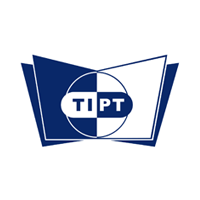
While safety and effectiveness have long been top priorities in drug development, in recent years, patient-centric concerns have become increasingly important. While such concerns have always played a role in drug development, they tend to be much more prominent today, thanks to patients being better informed about their treatment options and more willing to have their voices heard.
Patient-centric drug development is making a difference throughout the pharmaceutical industry. For that reason, anybody considering a career in pharmaceutical research and development should be aware of how patient-centric concerns are having an impact.
Rare Disease Research Is Helping to Drive Patient-centric Drug Development
A significant factor in the trend towards patient-centric drug development is the move away from blockbuster drugs and towards niche drugs within the pharmaceutical industry. Blockbuster drugs, which have the potential to help treat millions of people, are becoming less common, largely thanks to the fact that many of the most common health conditions already have good treatment options available.

As a result, pharmaceutical companies are focusing more on treating rare diseases by developing so-called niche drugs. By focusing on niche drugs, pharmaceutical companies are also dealing with much smaller patient populations. Patients with rare diseases also tend to be better informed about their conditions and more involved with patient advocacy groups. That, in turn, is compelling drug makers to take patient-centric concerns into account during the earliest stages of drug development.
Patient Input Is Being Used to Help Regulators Make Decisions on New Drugs
In your R&D pharmaceutical training, you’ll learn about regulatory affairs, which have been changing in response to patient-centric concerns. Regulators are increasingly open to ensuring patients’ voices are heard during the drug approval process. That means seeking their input about risks and benefits of certain drugs, which regulators and pharmaceutical companies themselves may otherwise overlook or not fully appreciate. In recent years, some regulators have even made patients a key part of the approval process for new drugs.

For example, in 2015 the US Food & Drug Administration (FDA) sought patient input on the approval of a new therapy for melanoma. Patients indicated that there were significant cosmetic and psychological benefits to seeing melanoma lesions decrease in size as a result of the treatment. That insight proved to be instrumental to the FDA’s decision to ultimately approve the new therapy.
Learning About Dosage Forms in R&D Pharmaceutical Training Can Help Break Down Barriers to Use
The full benefit of medications can only be realized by patients if they are properly using them. If medication is inconvenient or too complicated to take, such as if the pill is too large for some patients to swallow or there are too many steps in order to administer the medication properly, then those are barriers to proper use. The more barriers there are to use, the less likely patients are to take their medications correctly.
Patient-centric drug development places significant emphasis on drugs that are easy and convenient for patients. During your pharmaceutical research and development courses you’ll learn about dosage form design, which is a key aspect to making medications easier to use. For example, many people find taking capsules is easier than taking other dosage forms, like intravenous injections. Understanding the different dosage forms can help you to better understand their role in making drugs more patient-friendly.
Are you interested in a career in the pharmaceutical industry?
Contact Toronto Institute of Pharmaceutical Technology to learn more about our pharmaceutical research and development program.
